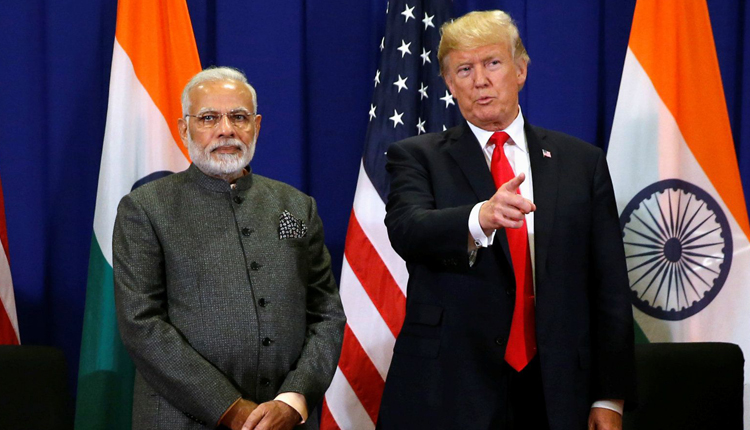India top execs raise concerns about possible trade war with U.S
India is set to be on the list of countries that are growing frustrated with the U.S. administration’s trade policy.
A group of top executives and government officials from India met in Washington on Thursday with U.S. trade representatives and others at the Annual Leadership Summit of the U.S.-India Strategic Partnership Forum (USISPF).
Many expressed their concern about an ongoing trade dispute between the two countries.
India did not receive an exemption from U.S. tariffs on aluminum and steel imports, prompting Prime Minister Narendra Modi’s government to respond with its own set of tariffs on roughly $240 million of U.S. goods, set to go into effect in August.
Ajay Singh, the chairman and managing director of India’s discount airline SpiceJet, spoke about trade at the summit during a session moderated by CNBC, questioning the direction of the relationship between the two countries.
“We need to talk about this a lot more,” he said. “Where do we see ourselves several years from now? Is this really a strategic relationship? Is it that we will trust each other enough? Will India trust the U.S. to be there when India needs them? And will the U.S. trust India with technology that’s obviously been developed with a great deal of effort?”
Sen. Mark Warner, a Virginia Democrat and co-chair of the Senate India Caucus, highlighted the importance of the U.S.-India relationship but admitted there is room for progress.
“I think there may be a good rapport between Modi and Trump but that hasn’t translated into enough solid action,” he said at the event.
Not only is India an important growth market for U.S. corporations, but it serves as a strategic political ally for Washington in the region, often seen as an effective way to counterbalance China. Indian executives including Singh said they worry that if the trade dispute escalates, India will have to seek support from other nations.
“On the defense side, a lot of Indian equipment is from Russia … and that country has had a history of standing by India in its times of need,” Singh said. “We need a similar assurance from the United States. We also need to find a way in which we marry President Trump’s ‘America First’ with Prime Minister Modi’s ‘Make in India.'”
“Make in India” is a reference to Modi’s campaign to encourage companies to make products and invest in India.
Meantime, Indian officials said they remain hopeful that the world’s two largest democracies will be able to come to an agreement on trade, though New Delhi is ready to retaliate if needed.
“I hope that this is a resolution that can happen through negotiation rather than retaliation,” former Indian government official Dr. Arvind Panagariya said. “But at the end of the day, if one country retaliates, as a defensive measure, if India has to retaliate, unfortunate as it may be, I think it will have to do it. Because else, your markets become closed to me, my market remains open to you.”
Despite fresh concerns around trade, corporate leaders from several U.S. firms at the summit, including Philip Morris, Caterpillar, Twenty-First Century Fox and General Electric, said they were optimistic about the growing number of economic opportunities between the two nations. A number of speakers cited Walmart’s decision to buy a 77 percent stake in Indian e-commerce company Flipkart for roughly $16 billion. The mega-deal, some executives said, has already inspired more American firms to take a serious look at India for opportunities.
Mukesh Aghi, the president and chief executive of the USISPF, said more opportunities will emerge as foreign investors like Japan’s SoftBank continue to invest in India’s thriving start-up landscape.
“The business opportunities for both Indian companies, American companies, large companies and small companies is dramatic,” said John Chambers, the chairman emeritus of Cisco Systems and chairman of the USISPF, to CNBC. “India will be the fastest-growing economy for the next decade. When I said that three years ago people said, ‘I’m not so sure.’ You can see that’s going to happen in the world. I think from a business perspective, the opportunity is very good.”
Source: CNBC


